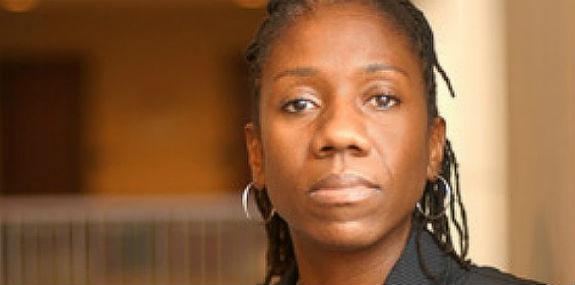Meet the Nation’s Next Civil Rights Leader
Share
Explore Our Galleries
Breaking News!
Today's news and culture by Black and other reporters in the Black and mainstream media.
Ways to Support ABHM?
By Jenée Desmond-Harris, theRoot
Sherrilyn Ifill, the new president of the NAACP LDF, shares her vision of justice.
The NAACP announced this week that attorney and law professor Sherrilyn Ifill will be the LDF’s (Legal Defense Fund’s) next president and director counsel [beginning in January 2013].

Perhaps best known for its role in the landmark school-desegregation case Brown v. Board of Education, LDF has worked for decades to expand political participation, forestall injustice in the criminal-justice system, broaden avenues of educational opportunity, defend economic freedoms and further the nomination and appointment of fair-minded and diverse judges through impact litigation and advocacy.
“LDF changed America,” Ifill told The Root. “But too many have been left behind, and the opening of the door is getting narrower and narrower….
We can no longer assume that generations of Americans understand the importance of racial justice and equality, or even what those words mean. We cannot assume that even all of the judges we face understand the history, intended purpose or effect of our civil rights laws and statutes on the individuals they were designed to protect.
And we are confronted with the task of identifying civil rights problems that look very different from those in the past but have the effect of perpetuating racial inequality.”
Read the full interview here.
Ifill has since shown support for Justice Ketanji Brown Jackson.









Comments Are Welcome
Note: We moderate submissions in order to create a space for meaningful dialogue, a space where museum visitors – adults and youth –– can exchange informed, thoughtful, and relevant comments that add value to our exhibits.
Racial slurs, personal attacks, obscenity, profanity, and SHOUTING do not meet the above standard. Such comments are posted in the exhibit Hateful Speech. Commercial promotions, impersonations, and incoherent comments likewise fail to meet our goals, so will not be posted. Submissions longer than 120 words will be shortened.
See our full Comments Policy here.